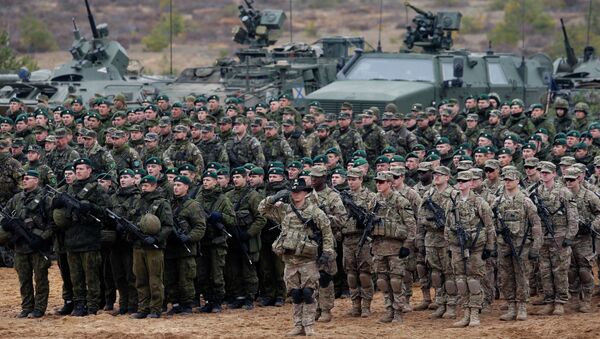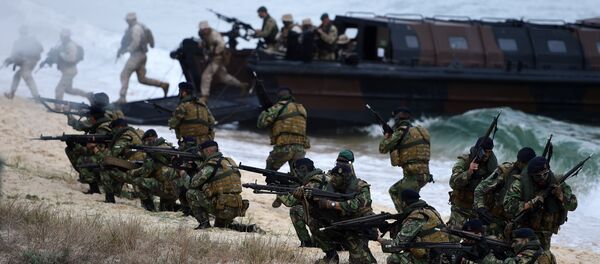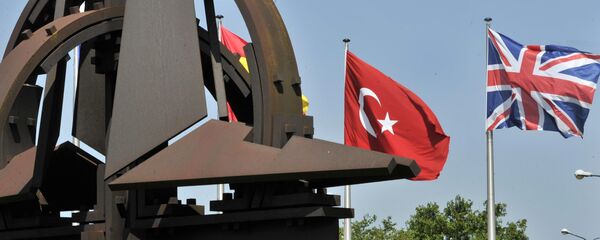In it, Kuhn challenges the analysis of Center for European Policy Analysis president A. Wess Mitchell, who recently suggested that NATO must resolve to build up the military potential of Poland and the Baltic states, and that the organization must do so quickly, "while Russia is mulling its regional options."
For his part, Kuhn suggests that what Mitchell's proposal lacks "is the need to create room for diplomacy, both within the alliance and vis-à-vis Russia." Ultimately, the German analyst argues, it is diplomacy, and not just brute firepower, which has served as NATO's most successful defense strategy in decades past.
"Mitchell's sole concentration on deterrence by denial puts him in the corner of those who prefer a pure power response" to Russia, Kuhn notes.
"On the other side there are those who plead for more limited reassurance measures along the lines of the Wales Summit decisions, a resumption of high-level NATO-Russia dialogue, and a staunch commitment to the last remaining pillars of institutionalized order in Europe."
Berlin, Kuhn points out, "vividly opposes" suggestions in Washington, Warsaw and the Baltic countries that the 1997 NATO-Russia Founding Act's promise not to station substantial combat forces in Eastern Europe has been rendered obsolete by the Ukrainian crisis.
On a deeper level, however, the analyst suggests that "NATO's Baltic dilemma is [really] a dilemma of either giving preference to power or giving preference to order." The dilemma, he notes, is based on differing perceptions among the NATO allies on what constitutes order.
"NATO's Western European allies such as Germany remember the Cold War as an extreme period of constant threat and its demise as the result of the successful combination of American military commitments (power) and arms control policies (order). The former helped to deter a Soviet attack; the latter helped to avoid the worst unintended consequences of the military standoff. This collective memory has led those states to startle in pain every time another arms control treaty collapsed during the last years. It makes them cling to the last remains of institutionalized order and to define security not solely in terms of power."
NATO's new eastern members, on the other hand, with their experience of being 'on the other side of the fence' during the Cold War, see order as something depending "on the actions of the powerful. That is why these states do not look to Berlin but to Washington every time Russia issues a new threat."
"In Washington, meanwhile, a new foreign and security policy starts to emerge which is very much detached from the Cold War narrative of the successful combination of military power and institutionalized orders. Pundits like Mitchell are much quicker in suggesting security through power than security through order because they have no experience with managing a highly dangerous and potentially deadly adversarial relationship."
By negotiating with Russia on arms control in the Baltics, "with the clear goal of a mutual and verifiable restraint regime for the Baltic region," the analyst argues, NATO would create dialogue which, ultimately, "could even open up the way for broader discussions about European security, the wars in Ukraine and Syria as well as potential cooperation to counter common threats like Daesh."
Unfortunately, the analyst himself is not immune to a measure of 'peace through strengthesque' folly. Negotiations with Russia on the Baltics, in his view, must be conducted via an "either-or-option", with Russia either "agree[ing] to arms controls talks…or [facing] a considerable build-up of permanently stationed, defensively-oriented, multilateral NATO forces close to its border."
Moscow, for its part, has never responded positively to having a stick waved in its face, and doesn't particularly appreciate lectures from Western leaders and pundits on how it 'must stop its aggression in Europe'. It's not Russia, for fairness' sake, which has preserved a Cold-War relic of a defensive organization, and expanded it deep into the heartland of its former enemy's sphere of influence.





